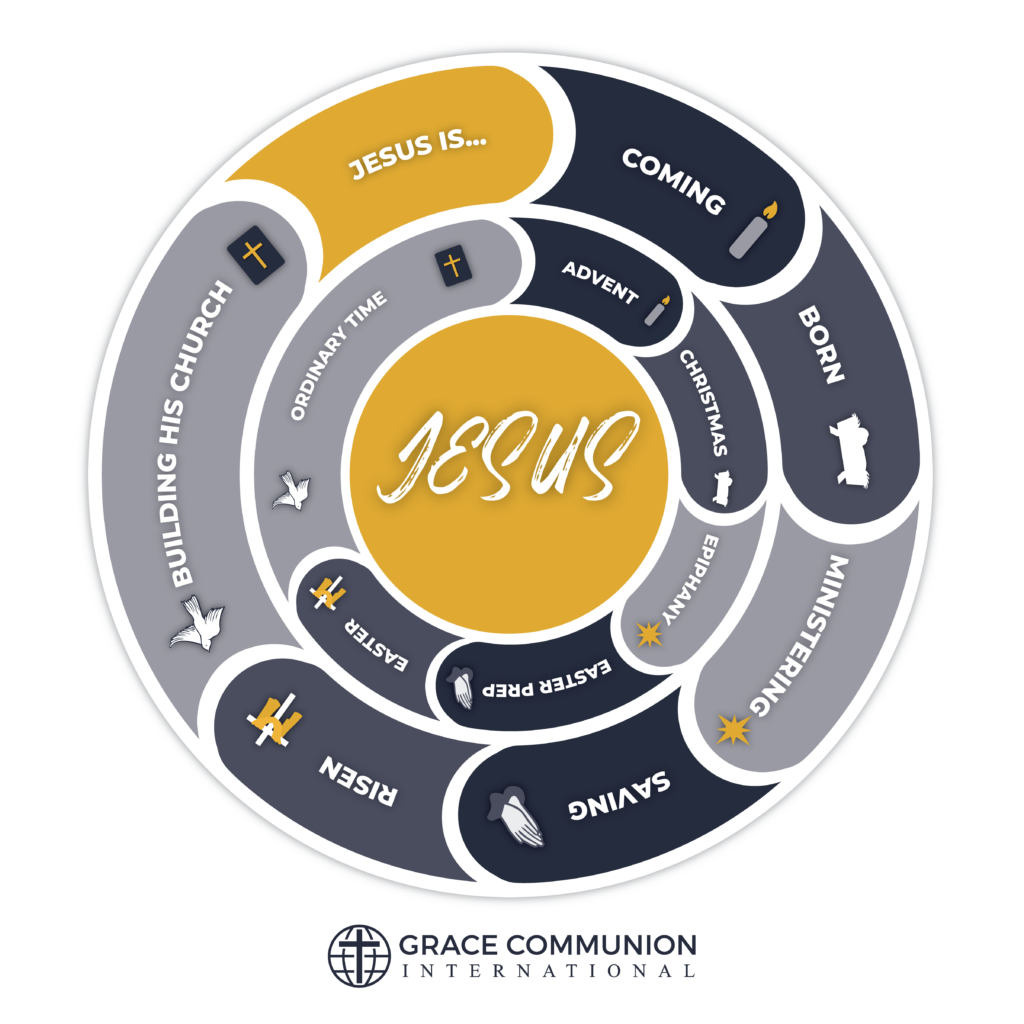Ordinary Time enables us to engage the “angels of the hour.”
 By Tim Sitterley, US Regional Director, West.
By Tim Sitterley, US Regional Director, West.
I was having a conversation with a bright 9-year-old at church the other day. I asked her if she was excited that school would soon be over, and it would be summer vacation. Her smile turned down and I actually thought she was about to cry. It seems that she absolutely loves the busyness and activities of school, and the months of summer are nothing more to her than an eternity of boredom until school starts back up.
But that’s because time moves so slowly for a child. When you’re nine years old, one year constitutes one-ninth of your life. That’s a long time. When you reach my age, one year is a tiny fraction of your life and so time speeds up – so much so in fact that, at a point, you also sometimes long for special occasions to be over with, for visitors to go home, and for distractions to disappear so that you can return to a more ordinary rhythm in your life. Routine might be boring, but we sleep a lot better when our lives are being visited by the angels of routine and the ordinary.

For those of us who follow the Christian calendar, it’s once again time to deal with that word “ordinary.” And I hope we can come to see the incredible possibilities that accompany the word and the season.
As has been stated previously, in Equipper and other GCI articles, “ordinary,” in this context, comes from the Latin term ordinalis, meaning numbered or ruled. This title simply refers to the ongoing and rhythmical nature of the season. The “first” Sunday after Pentecost. The “second” Sunday after Pentecost. And so on.
Just like everyday life, there is a rhythm to the days and the weeks. And that rhythm is reflected in the Christian calendar. We have holidays and special occasions that we look forward to that change the pace. But those special occasions aren’t the whole picture, just like there is more to the life of Christ than what we celebrate in other liturgical seasons.
Ordinary Time begins the day after Pentecost and ends the day before the First Sunday of Advent. It may include twenty–three to twenty–eight Sundays, depending on the date of Easter, but the first Sunday is always Trinity Sunday, and the last Sunday is always the Sunday of the Reign of Christ or Christ the King.
And while Advent (culminating in Christmas) and Easter (culminating in Pentecost) focus primarily on the incarnation, death, resurrection, and ascension of Jesus Christ, followed by the descent of the Holy Spirit at Pentecost, the passages of the Revised Common Lectionary during Ordinary Time contain the rest of Jesus’ earthly ministry and some of the major events of the Gospels we have come to know and love. The miracles, the parables, the calling of the twelve, the sermon on the mount, the bread of life discourse — we get all that and more during this season.
Ordinary Time is a time for personal growth and maturation. It’s a time to walk through the life and ministry of Jesus. To experience vicariously through scripture what Jesus’ disciples experienced firsthand. It is a time to celebrate, day by day, this incredible, eternal relationship we have been invited into.
In a marvelous little book entitled, The Music of Silence, David Steindl-Rast highlights how each hour of the day has its own special light and its own particular mood, and how we are more attentive to the present moment when we recognize and honor these “special angels” lurking inside each hour.
During the hectic and focused seasons of Advent and Easter there can be many distractions in our lives, both inside and outside our church experience. It can become a challenge to overcome the difficulties of being attentive to the present moment – of meeting, as Richard Rohr puts it, “the naked now.” Those “angels of the hour” that David Steindl-Rast writes about get shoved aside by the activity and noise.
But during the season of Ordinary Time, we can find the quiet necessary for meditation and contemplation. (See Jillian Morrison’s article on Spiritual Practices during Ordinary Time.) Like summer vacation for a student, where the bombardment of knowledge ceases for a period, we too are free to receive the life and teachings of Jesus in small doses. And since we are not in a rush to prepare for the next big thing, we can take the time to soak in the Word, to breath it in, and to find exciting new ways to bring it to life in our daily walk.
I learned early on that summer vacation was only as fun and exciting as I made it. I did not grow up with the wealth to make trips to Disneyland and exotic locations a reality. But there were woods to explore, creeks to swim in, friends to get into mischief with, and books to get lost in.
My prayer is that we, as followers of Jesus and students of his life and teachings, can look at Ordinary Time the way I looked at summer vacation. That we take every opportunity between Trinity Sunday and Christ the King Sunday to engage the angels of the hour, the small things, the quiet times of personal introspection. Instead of simply counting down the days until the joyous busyness of Advent, may we embrace each of those days as an opportunity to grow deeper in our relationship with our triune God. The possibilities of how we do that are endless.



We need to make the most from the time God has given us, every day. Thanks for this important reminder.
Wow! I needed this. Thank you for reminding me to take time to breathe in the joy of the Lord this summer. I teach, and summer is a time of renewal and rest. May we ALL be renewed and rest in the Father, Son and Holy Spirit this summer…and always!